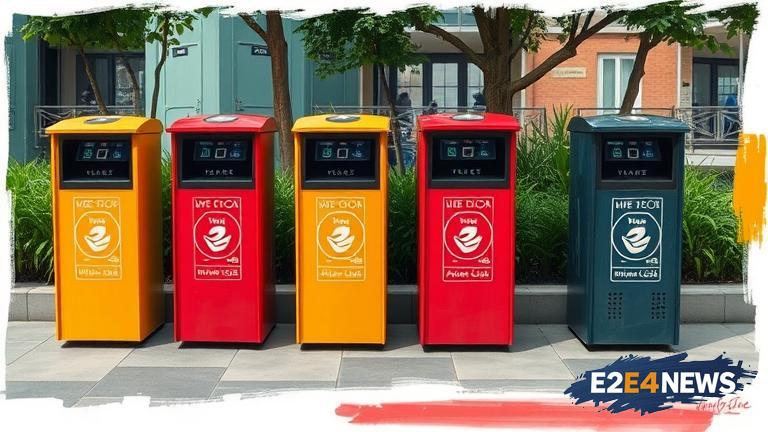The Health Sciences Authority (HSA) in Singapore has launched a new initiative to promote the proper disposal of vapes and electronic cigarettes. The authority has installed special disposal bins in various locations across the island, allowing users to discard their used vapes and e-cigarettes in a responsible manner. According to the HSA, users who discard their vapes and e-cigarettes in these designated bins will not be traced or penalized. This move is part of a broader effort to reduce the environmental impact of these products and minimize the risk of accidents or injuries caused by improper disposal. The HSA has emphasized that the disposal bins are designed to ensure the safe and secure disposal of vapes and e-cigarettes, and that users can dispose of their devices without fear of repercussions. The initiative has been welcomed by environmental groups and health advocates, who have long been concerned about the growing problem of vape waste in Singapore. The HSA has also reminded users that the disposal bins are for vapes and e-cigarettes only, and that other types of waste should not be discarded in these bins. The authority has urged users to make use of these designated bins and to dispose of their vapes and e-cigarettes in a responsible and environmentally friendly manner. The introduction of these disposal bins is seen as a positive step towards reducing the environmental harm caused by vapes and e-cigarettes, and promoting a culture of sustainability and responsibility in Singapore. The HSA has also announced plans to increase public awareness about the importance of proper disposal and the risks associated with improper disposal. The authority will be working with schools, community groups, and other stakeholders to educate the public about the safe and responsible use of vapes and e-cigarettes. In addition, the HSA will be monitoring the effectiveness of the disposal bins and making adjustments as needed to ensure that the initiative is successful. The use of vapes and e-cigarettes has become increasingly popular in Singapore in recent years, and the HSA has been working to address concerns about the health and environmental impacts of these products. The introduction of the disposal bins is part of a broader effort to regulate the use of vapes and e-cigarettes and to promote public health and safety. The HSA has also reminded users that the sale and use of vapes and e-cigarettes are subject to strict regulations in Singapore, and that users who fail to comply with these regulations may face penalties. The authority has urged users to be aware of the laws and regulations surrounding the use of vapes and e-cigarettes, and to use these products in a responsible and lawful manner. The introduction of the disposal bins has been seen as a positive step towards promoting sustainability and reducing waste in Singapore. The HSA has emphasized that the responsible disposal of vapes and e-cigarettes is an important part of reducing the environmental harm caused by these products, and that users have a critical role to play in promoting sustainability. The authority has also announced plans to explore new technologies and initiatives to reduce waste and promote sustainability in Singapore. The use of vapes and e-cigarettes has been linked to a range of health and environmental problems, including nicotine addiction, air pollution, and waste management issues. The HSA has been working to address these concerns through a range of initiatives, including public education campaigns, regulations, and enforcement actions. The introduction of the disposal bins is part of a broader effort to promote public health and safety, and to reduce the environmental harm caused by vapes and e-cigarettes. The HSA has urged users to take responsibility for their actions and to use vapes and e-cigarettes in a responsible and sustainable manner. The authority has also reminded users that the health and environmental impacts of vapes and e-cigarettes are still not fully understood, and that further research is needed to fully understand the risks associated with these products.
